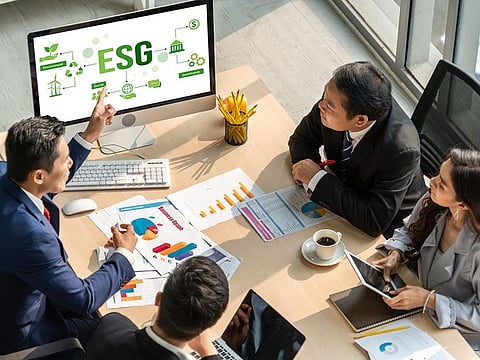UAE’s SMEs can pull their weight in any ESG transitions
More consumers are putting action into words by preferring ESG-backed products, services

Sustainability isn't a trend.
Becoming eco-friendly is a fundamental shift in our approach toward preserving our planet's future. With COP28, ESG-driven initiatives are more topical than ever, but the crucial need for sustainable practices demands action from all players.
When we look at the alarming surge in plastic pollution, is it really the problem? I believe we are the problem. Whether that’s a result of multinational organisations continuing to fund plastic production, startups entering the market and joining the existing chain, or the retailer and consumer fueling the chain – the life cycle is reliant on every component.
We cannot rely on only governments and global institutions to change the narrative, but what can be achieved is collaborative efforts to reinvent the wheel. The role that startups and SMEs can play in advancing the agenda to prevent further production of single-use plastics holds significant weight.
This is because of the consumer. The meaning of sustainability in tomorrow’s world lies in today’s consumer mindset.
Collaboration goes beyond sharing best practices. It involves co-creating solutions, leveraging each other's strengths, and nurturing an ecosystem that champions greener ways of doing things at every stage.
Conscientious consumerism is a seismic shift in attitude and purchasing behaviour, whereby circular shopping is proving to not only have an impact on consumer values but is now prevalent in what products consumers choose to buy and in turn, the brands they stay loyal to.
ESG linkups will help brands
In effect, can a brand – big or small – who doesn’t comply afford to be on the back foot?
According to McKinsey & Company, products that make ESG claims have achieved an average of 28 per cent cumulative growth over the past five years. In 59 per cent of all categories studied, the smallest brands that made such claims achieved disproportionate growth.
We are seeing firsthand that brands want to change; they want to create an impact and they want to continue to resonate with their customers by offering sustainable alternatives. Smaller companies have a huge opportunity in educating the wider supply chain on why it makes a difference, and how easy it is to make sustainable changes when you know what can be done.
Collaboration goes beyond sharing best practices. It involves co-creating solutions, leveraging each other's strengths, and nurturing an ecosystem that champions greener ways of doing things at every stage.
Broad alliances are what is needed
It’s about finding solutions to existing problems and avoiding creating new ones. This often requires wider partnerships between governments, consumers, investors, and corporations that collectively work together to reshape the chain and influence further corporations to follow suit.
Globally, 500 billion plastic bottles are consumed annually, yielding a staggering 381 million tonnes of plastic waste. However, simply replacing plastic with paper, can effectively reduce the use of single-use plastic use and eventually eliminate its place in the supply chain.
As manufacturers of machines and tooling as well as products, we can replace most plastic packaging with our alternative in as little as one month, removing that plastic from the waste stream. The ‘Fibre Bottle’ is the world’s first, available at-scale, patented paper bottle which is a viable, cost-effective, and real-world alternative to single-use plastic bottles and pouches.
Startups and SMEs are not just players in this movement - they’re catalysts for a sustainable revolution. Every sustainable choice, every eco-friendly innovation, and every conscious consumer decision counts. Collectively, these seemingly small actions have the power to affect monumental change.








